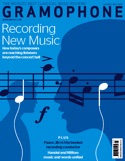Texte paru dans: / Appeared in: |
|
|
Outil de traduction (Très approximatif) |
|
|
Reviewer: David Vickers
We have only just welcomed the Boston Early Music Festival’s groundbreaking account of Steffani’s Niobe (Munich, 1688), and now another version has arrived thanks to Opus Arte and BBC Radio 3, who recorded this Royal Opera production across two nights in September 2010. The structured cacophony of splendid trumpets and drums in the Sinfonia illustrates how the Balthasar Neumann Ensemble are no slouches in comparison to any of the world’s finest Baroque orchestras, and it is significant, given Thomas Hengelbrock’s vigorously theatrical approach to the score, to note that he had already conducted it in a 2008 co-production between Schwetzingen (a historic castle theatre near Heidelberg) and Lisbon’s National Theatre of São Carlos.
The production is about 56 minutes shorter than Paul O’Dette and Stephen Stubbs’s meticulously crafted performance, which indicates the high level of cuts in Hengelbrock’s version. The experienced tragedienne Véronique Gens conveys pathos potently in Niobe’s shocked reactions to her husband’s suicide and her transformation into stone. The BBC’s microphones do not catch the sweetness of Amanda Forsythe’s stylish Manto as effectively as Erato’s studio recording does. O’Dette and Stubbs’s casting of high tenor Aaron Sheehan as the hopelessly infatuated Clearte makes better musical sense than Hengelbrock’s casting of countertenor Tim Mead, who sings with passion and refinement but sometimes unevenly. Alastair Miles’s Poliferno is thunderously villainous, and his protégé Creonte is sung with brilliant characterisation and rocksolid technique by Iestyn Davies (the only cast member who trumps his Bostonian counterpart). Hengelbrock’s awareness of colour and emotion in Steffani’s music is second to none, and admirers of Steffani’s fine opera will find much to enjoy, but this production is fundamentally undermined by ‘sopranist’ Jacek Laszczkowski, whose forcefully squeezed timbre, weak, under-phrased middle range, vibrato-sozzled unreliability and exaggerations of extremely high notes all conspire to butcher the main role of the Theban king Anfione; Steffani’s magical evocation of the harmony of the spheres in ‘Sfere amiche’ is played sensationally by muted strings (instead of viols), but it is rendered impotent by Laszczkowski’s singing. It’s a shame, given the supremely good work done elsewhere by Hengelbrock, his talented orchestra and the rest of the cast. |
|
|
|
|
|
Cliquez l'un ou l'autre
bouton pour découvrir bien d'autres critiques de CD |
|

/0809478090083.jpg)


